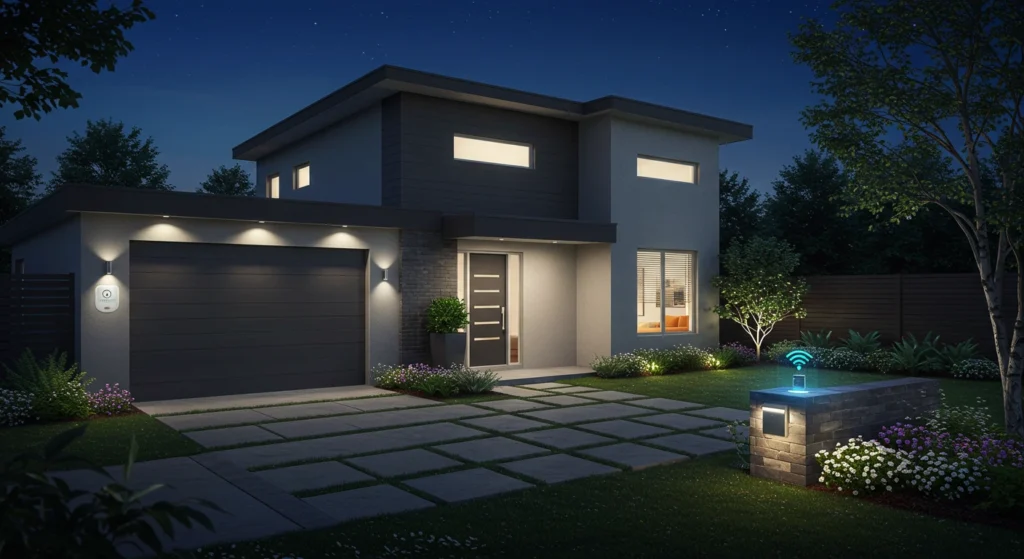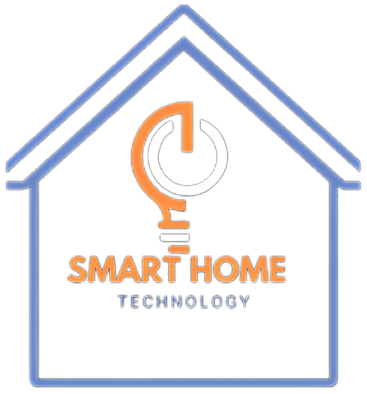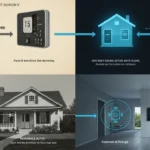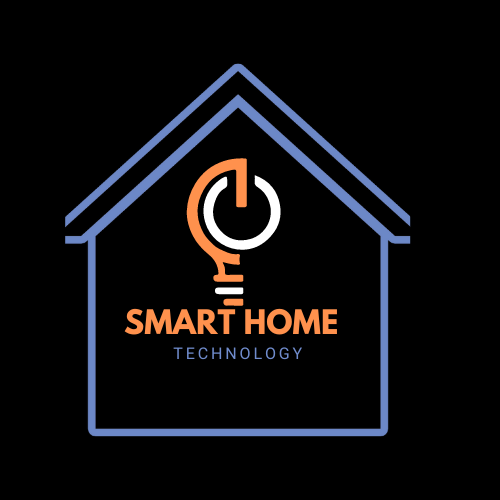Discover the top benefits and advantages of smart home technology in 2025. Learn how smart devices improve security, convenience, and energy efficiency.


Table of Contents
Introduction
I can recall my initial experience installing a smart thermostat. I thought I had stepped into the future. I only need to tap my phone once for instant comfort—no more fumbling with buttons or figuring out the ideal temperature!
Smart home technology aims to make life simpler, safer, and more effective—it is not simply about fancy devices. Whether you want to increase security, automate daily tasks, or reduce energy expenses, smart home appliances can help. And let us face it: Who does not want to be able to use their voice alone to control their entire home?
Let us examine the main advantages of smart home technology and why it is more than a fad.
In today’s rapidly changing technology landscape, smart home appliances have become essential to improving our everyday lives. These advances have numerous advantages, ranging from enhanced ease to strengthened security. We examine several important areas where smart home technology has a major influence.
Enhanced Home Security and Safety
Smart home gadgets give consumers access to advanced tools that make monitoring and protecting their homes much easier.
Smart Locks and Video Doorbells—The Future of Home Security
No more worrying about whether the front door is locked! Smart locks let you easily secure or unlock your door from anywhere using a smartphone app, giving you peace of mind at home or on the go. Video doorbells enhance this by providing real-time visuals of visitors, so you can see and chat with anyone at your doorstep, regardless of where you are. If a package arrives while you are at work, your video doorbell can send you an alert, allowing you to unlock the door for the delivery and secure it right after.
AI-Powered Security Cameras
Thanks to developments in artificial intelligence, security cameras can now identify the difference between people they know, strangers, and even pets. By identifying trends and spotting odd activity, these smart cameras instantly notify your device and, in some situations, sound an alarm to ward off possible attackers. This proactive strategy improves overall security by promptly informing homeowners of any questionable activity.
Motion Sensors and Automated Lighting
Integrating motion sensors with automated lighting systems offers two benefits: convenience and security. Because they create the appearance of an occupied home, lights that turn on when they sense movement can discourage would-be burglars. Automated lighting also improves daily life by lowering the chance of accidents by illuminating routes at night.
Smart Smoke Detectors
Security is only one aspect of safety; environmental risks are another. Smart smoke detectors can identify smoke and carbon monoxide and instantly notify your smartphone if there is a threat. By enabling prompt action, an early warning system may be able to avert calamities and protect the health of family members.
Convenience and Automation for Daily Life

Smart home technology simplifies daily chores, increasing the effectiveness and personalization of house administration.
Voice-Controlled Devices and Centralized Hubs
Since the introduction of voice assistants, our interactions with our homes have changed. By merging devices into a single smart hub, homeowners can use smartphone apps or basic voice commands to control lights, thermostats, and appliances. This smooth connection makes it simple to modify house settings, improving convenience and comfort.
Custom Routines and Geofencing
Smart home technologies can create personalized routines that fit each person’s lifestyle. For instance, turning on the coffee maker, listening to your preferred news podcast, and gradually enhancing the lighting in your bedroom could all be part of your daily routine.
Geofencing technology further improves automation by carrying out operations according to your position. As you approach your house, geofencing can activate features like turning on external lights and setting the thermostat to your desired temperature, creating a welcoming atmosphere.
Energy Efficiency and Cost Savings
Using smart home appliances can save a lot of money and promote a more sustainable way of living.
Smart Thermostats
Over time, these devices learn how you like your heating and cooling to work and change the temperatures based on occupancy and time of day to save you the most energy. Keeping you comfortable while lowering your energy bills is what smart thermostats do.
Smart Plugs and Power Strips
“Phantom load” is the term for electronics that use power even when not used. Smart plugs and power strips can turn these devices off when not in use, saving energy and money on the bill.
LED Smart Bulbs
By their very nature, LED lights use less energy than regular incandescent bulbs. When paired with smart technology, these bulbs offer dimming, scheduling, and remote control, saving even more energy and making the bulbs last longer.
Solar-Powered Smart Devices
Adding solar power to smart home gadgets reduces their reliance on the power grid and encourages using clean energy. Solar-powered outdoor lighting and security cams are two examples of how solar energy can help the environment and save money.
Improved Accessibility for Seniors and People with Disabilities

Smart home technology is very important for improving the quality of life for adults and people with disabilities. It provides them with tools to stay safe and independent.
Voice-Controlled Assistants
Voice-controlled assistants allow people with mobility issues to perform household chores without using their hands. They also make devices easier to use by enabling users to control temperature and lighting, set notes, and make calls.
Automated Medication Reminders
For many people, taking their medications simultaneously every day is very important. Smart home systems can send automated reminders to take medicines, ensuring that people follow their doctors’ instructions and lowering the chance of missing a dose.
Smart Doorbells and Cameras
Security features like smart doorbells and cameras allow people to watch their home’s entrances without going up to the door. This is especially helpful for people with trouble moving around because it makes things easier and safer.
Temperature and Lighting Automation
With automated home control, the lights and temperature are always comfortable, so you do not have to make any changes by hand. One group that might find this function especially useful is those who have trouble using regular controls.
Home Entertainment and Smart Living
Incorporating smart technology into home entertainment systems has changed how we enjoy media and leisure activities.
Smart TVs and Streaming Devices
Voice commands allow hands-free operation of contemporary smart TVs and streaming devices. Users can navigate between apps, change the volume, and search for content, improving viewing experience.
Wireless Multi-Room Speakers
Synchronizing wireless speakers to play music in various parts of the house can result in a seamless and appealing soundscape. Smartphone apps are the usual method of controlling them.
Read more on the downsides of a smart home security setup.
Conclusion
Smart home technology aims to make living safer, more convenient, and more effective—it is not just about gadgets. There is no denying the advantages, whether energy conservation, routine automation, or home security.
Therefore, if you have hesitated, now might be the time to act. Before you know it, you will wonder how you ever lived without a thermostat or smart plug.
👉 What’s your favorite smart home gadget? Let me know in the comments!
FAQs
Are smart homes expensive to set up?
Not necessarily! You can start with affordable devices like smart plugs or light bulbs and build from there.
Is smart home technology secure?
Yes, but always use strong passwords and two-factor authentication to protect your devices.
Can I control everything from one app?
Yes! Smart hubs like Google Home or Amazon Alexa allow centralized control.
Do smart home devices save money?
Absolutely! Smart thermostats and energy-efficient appliances can cut down on bills.
What happens if the internet goes out?
Some devices have offline modes, while others may be temporarily unusable.
Do smart locks work without Wi-Fi?
Many have backup key access or Bluetooth functionality.
Is voice control reliable?
Yes, but accents and background noise can sometimes cause hiccups.
Can renters use smart home devices?
Definitely! Many smart gadgets are non-permanent and easy to install.
Do smart homes require special wiring?
No, most devices work over Wi-Fi or Bluetooth without extra wiring. Are smart homes worth it?
100%! The convenience, security, and energy savings make it a great investment.



Pingback: The Hidden Disadvantages of Smart Home Technology in 2025 - smarthomze.com
Pingback: Smart Home Security 101: How to Protect Your Home in 2025 - smarthomze.com